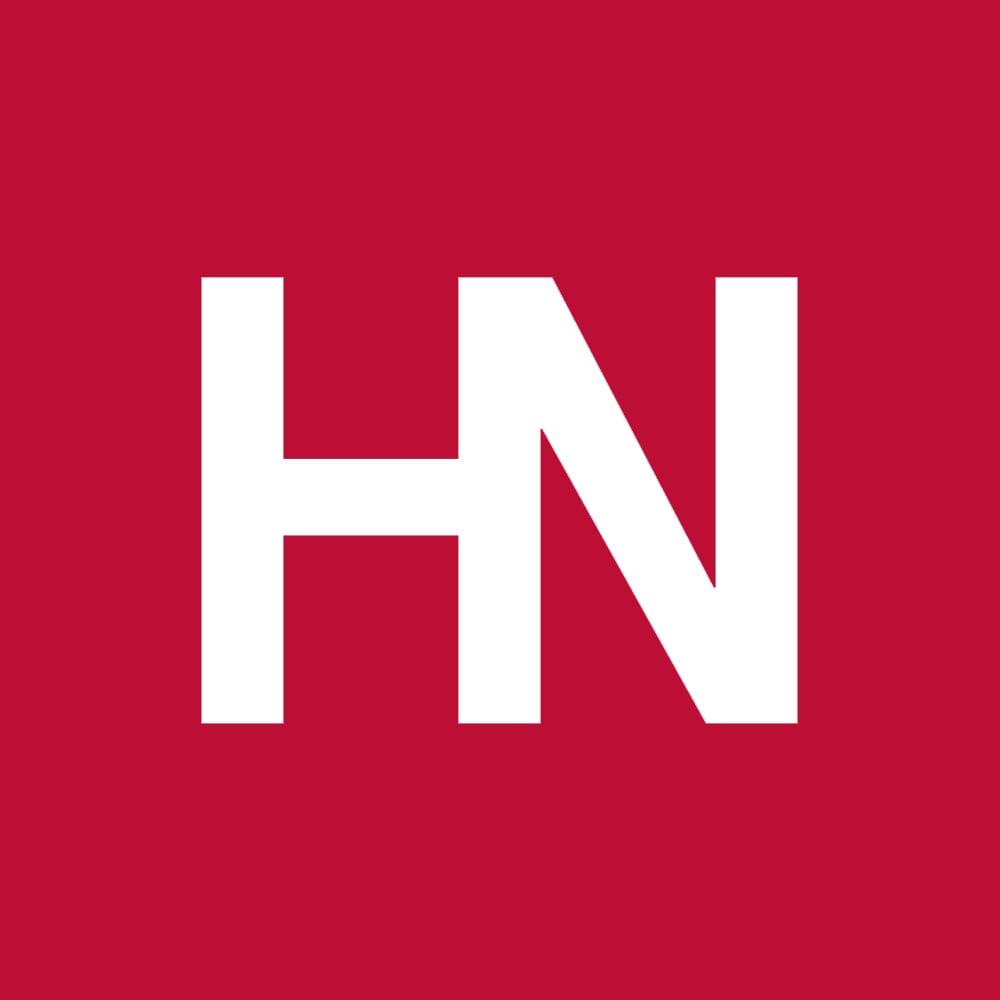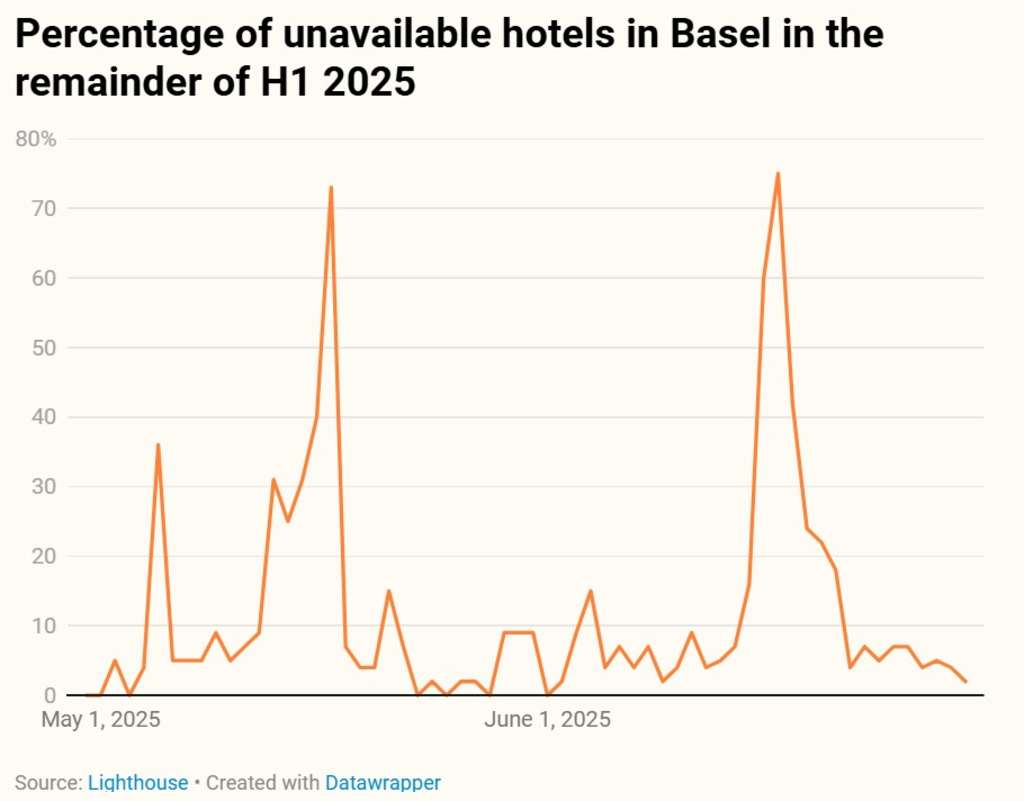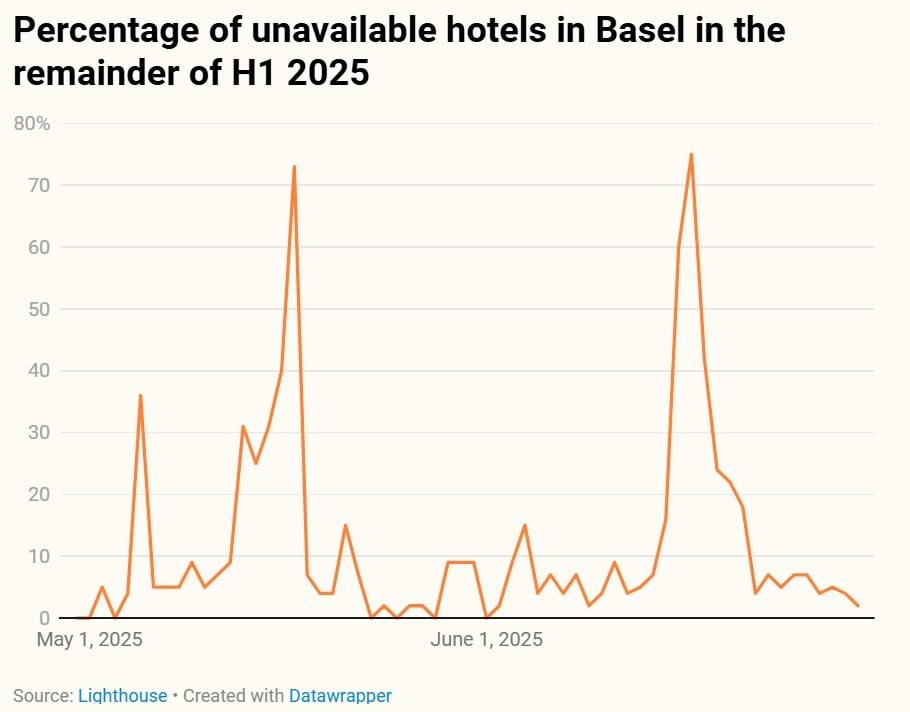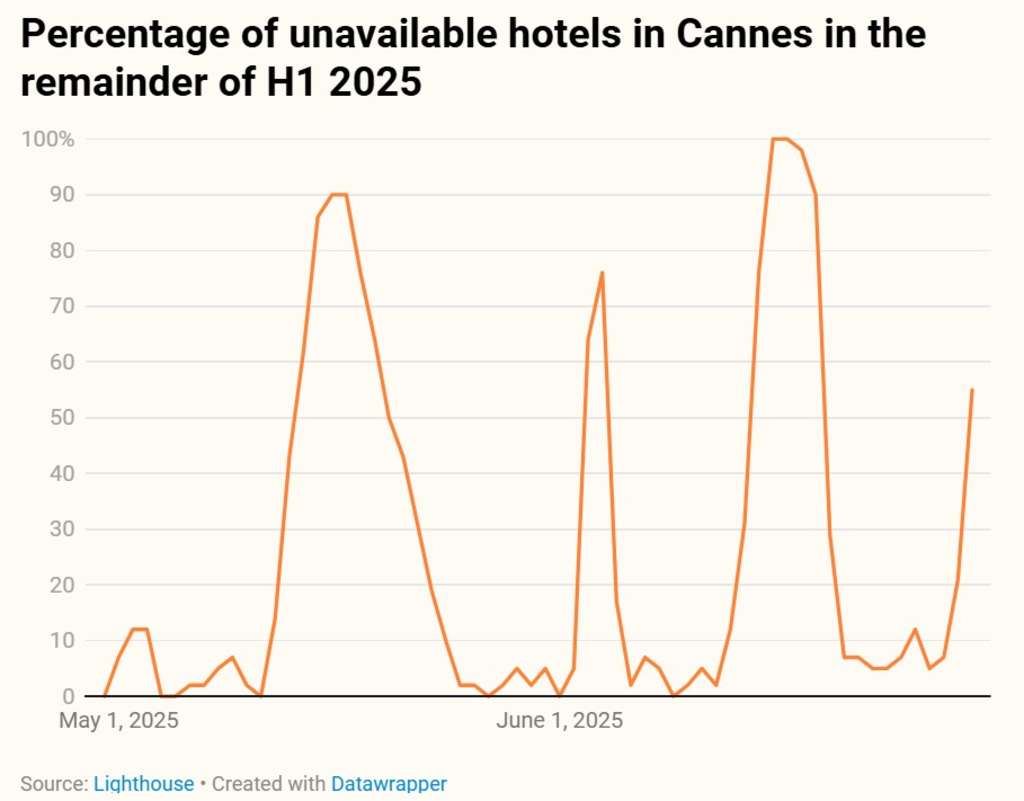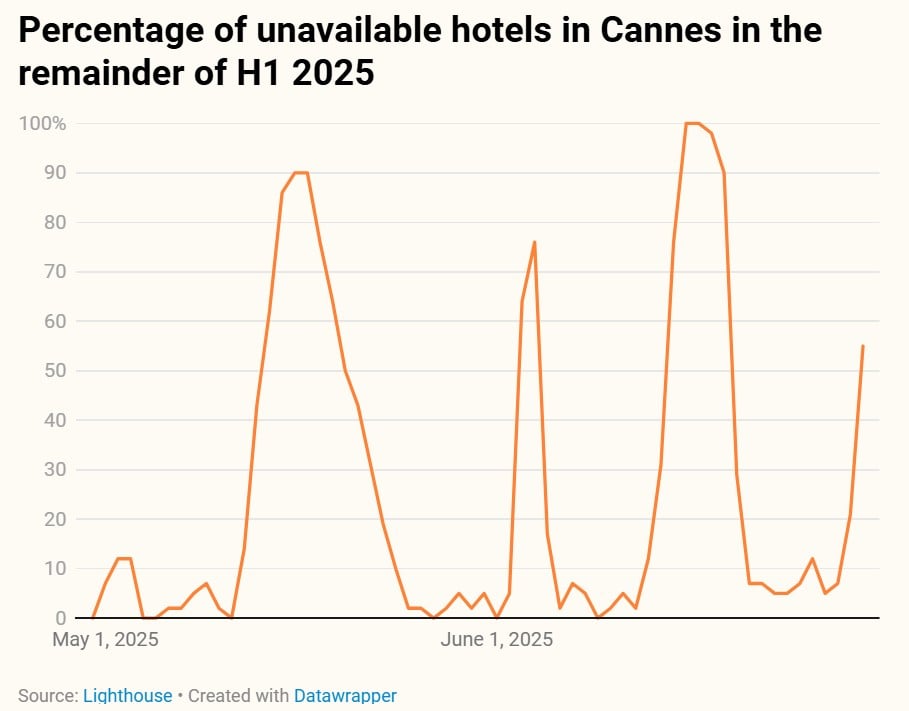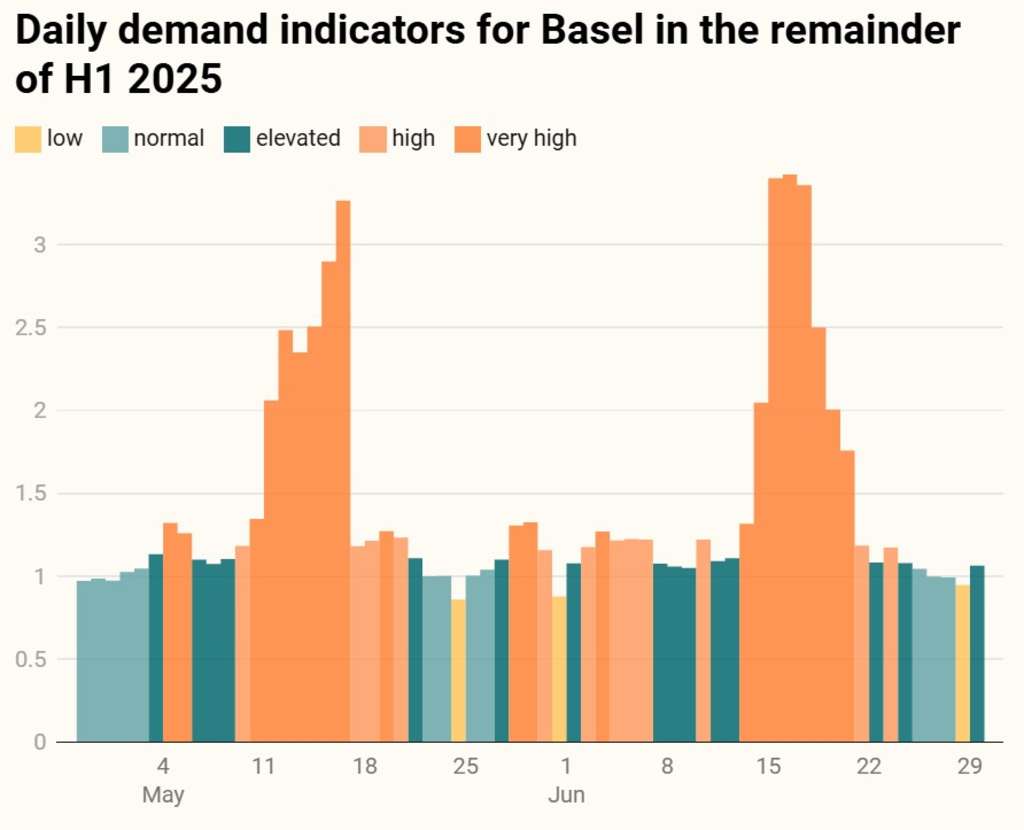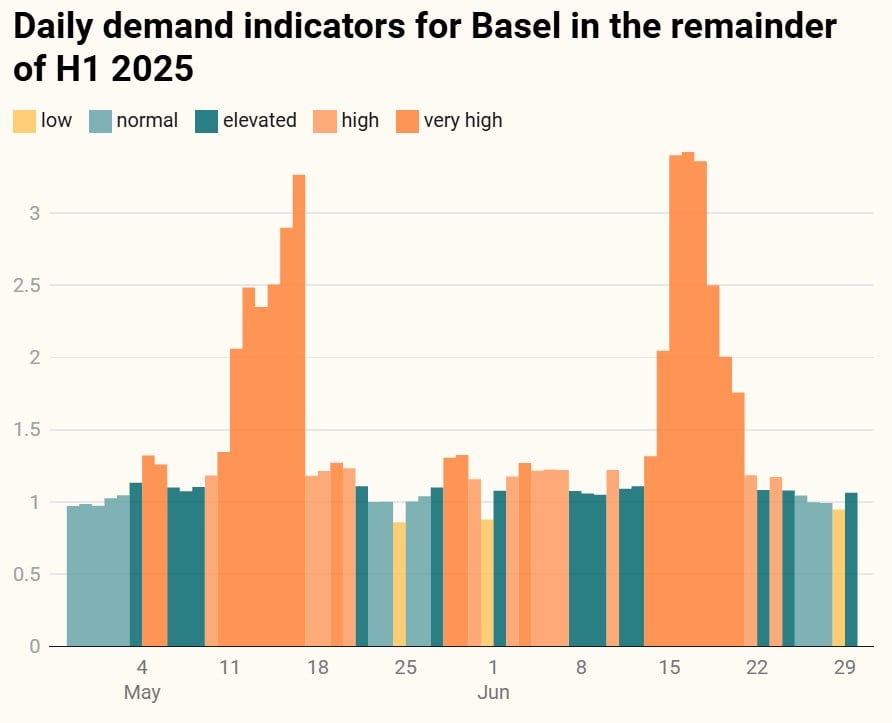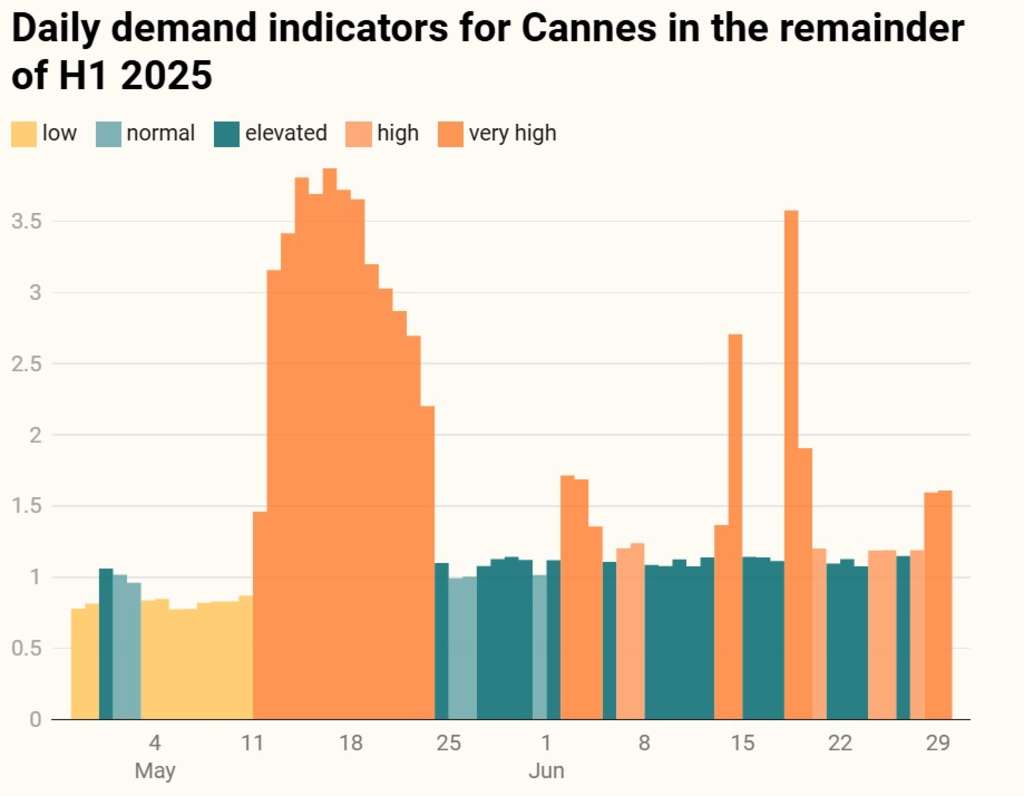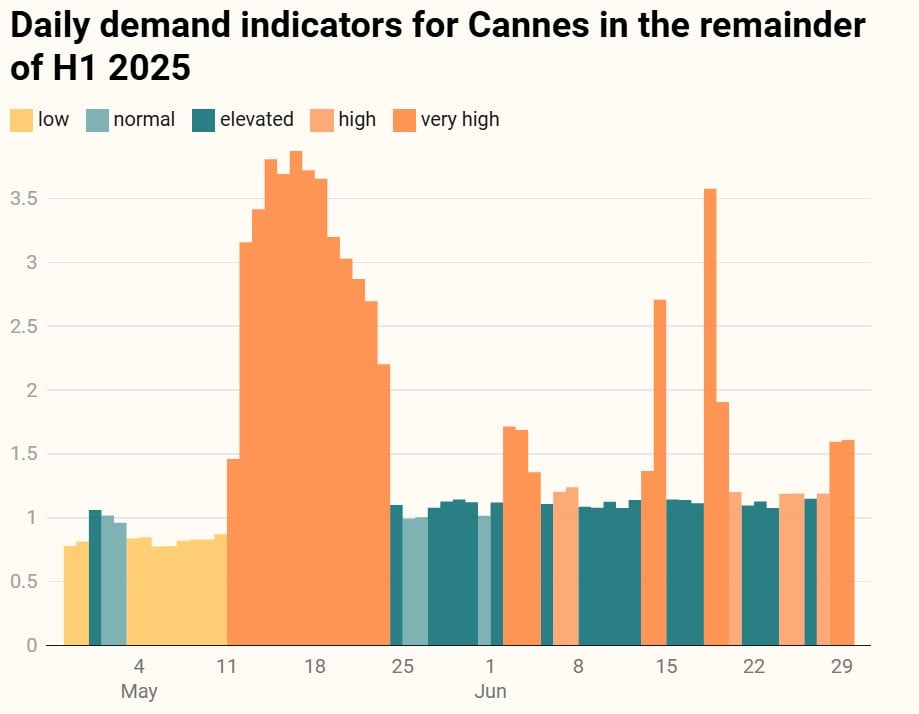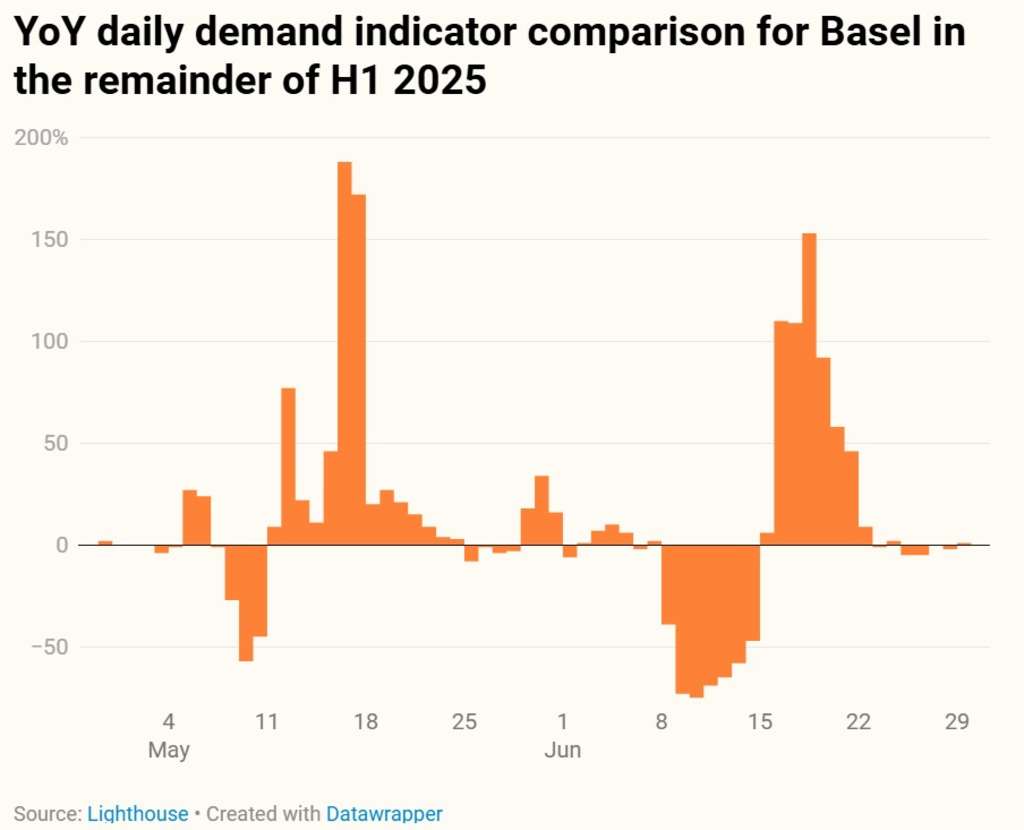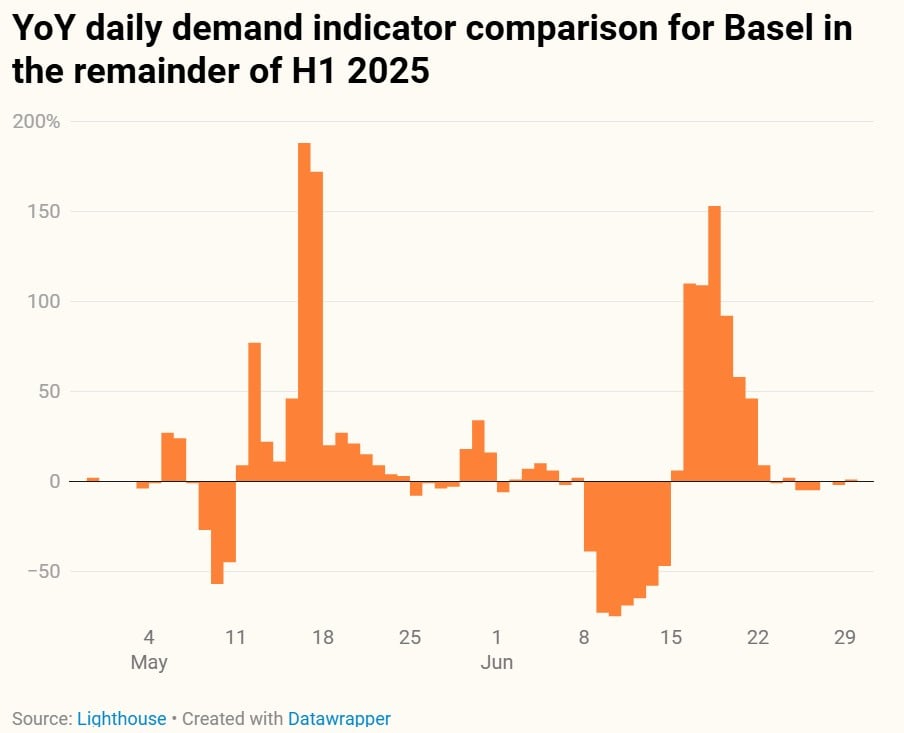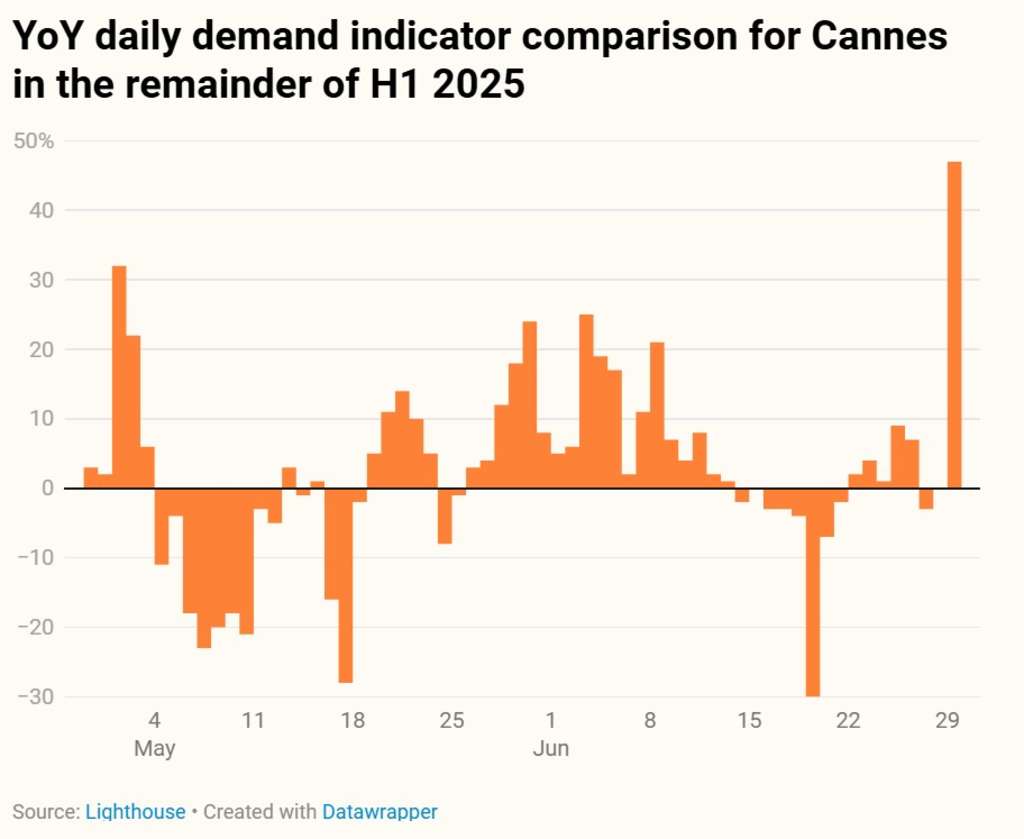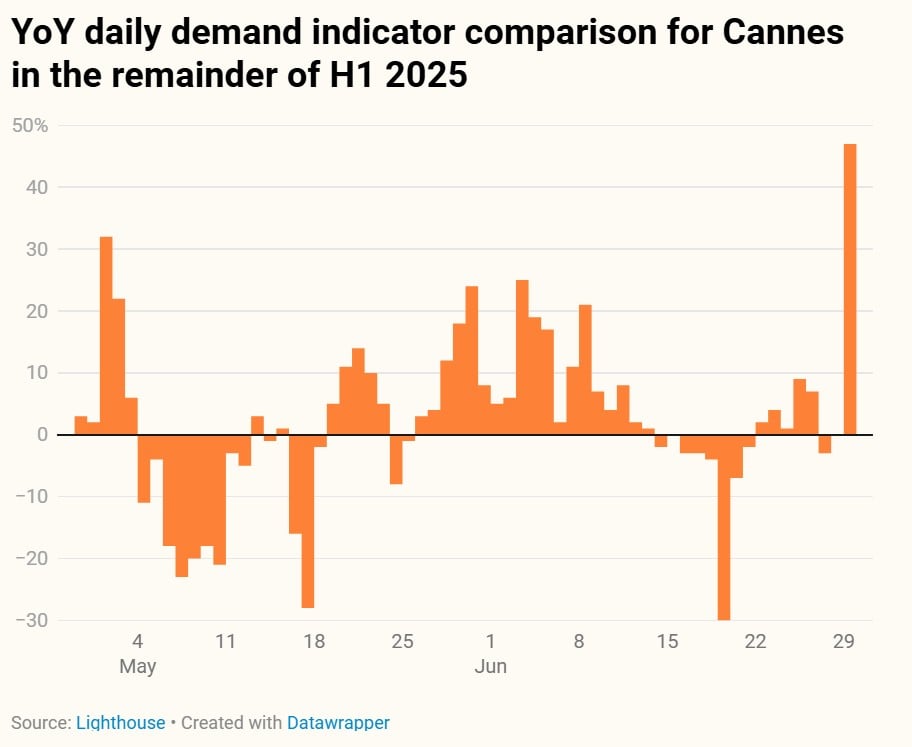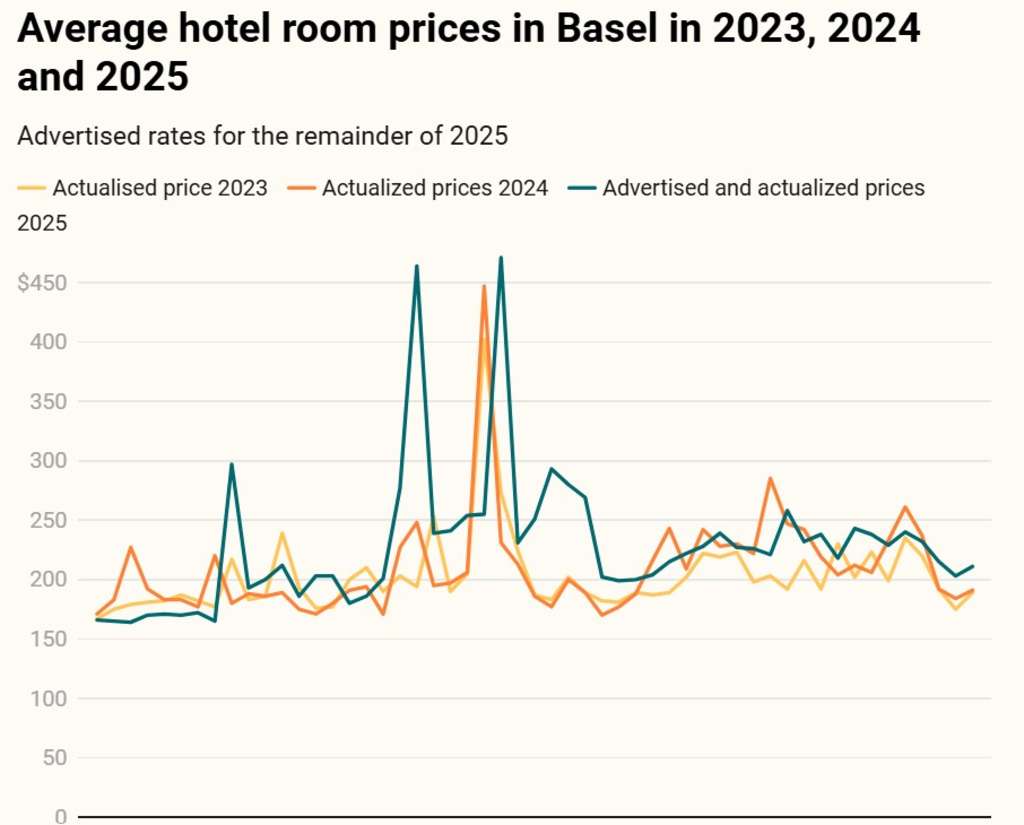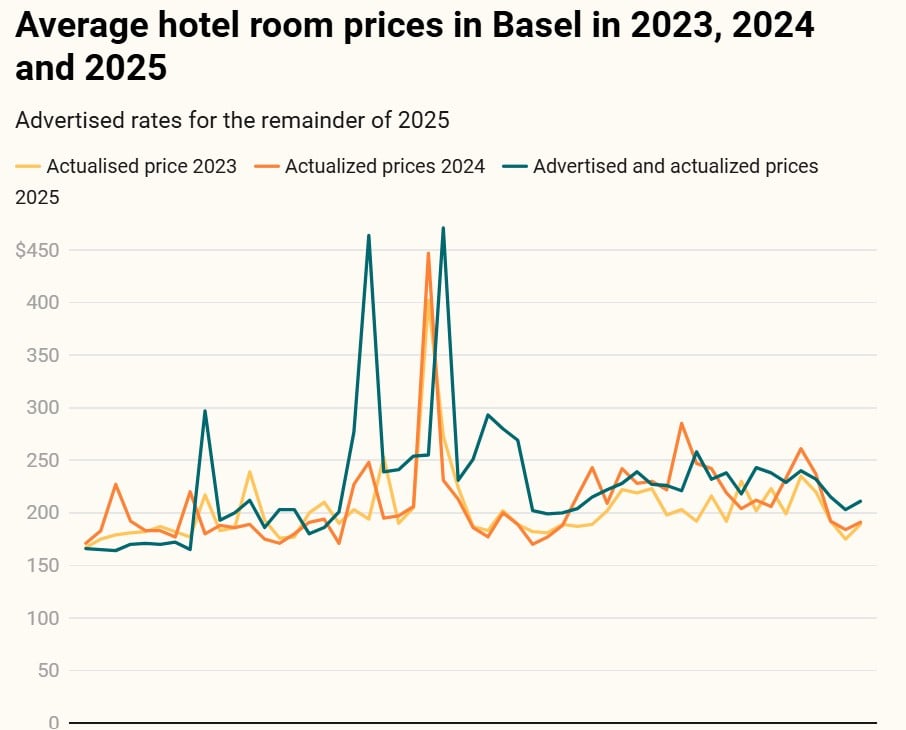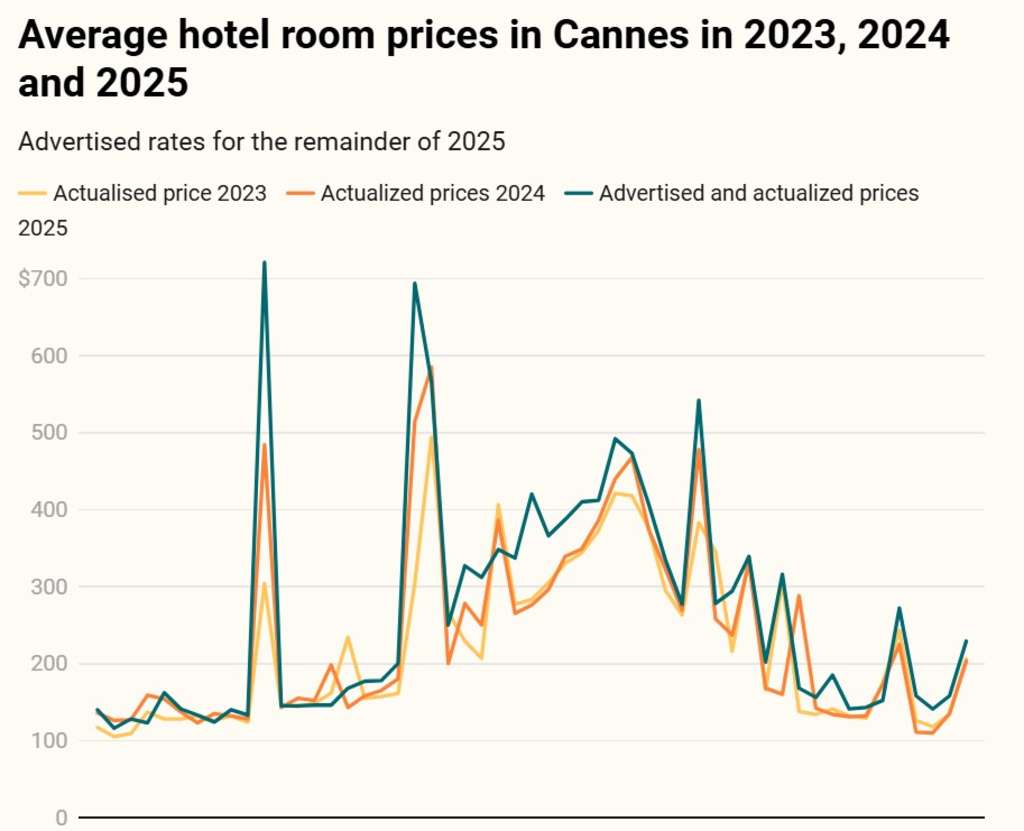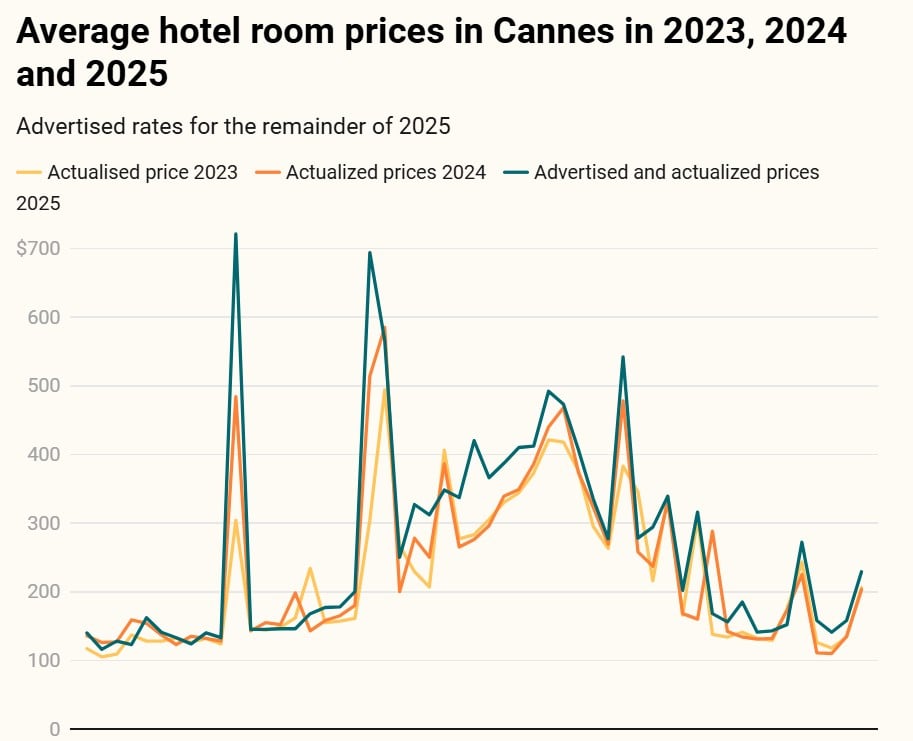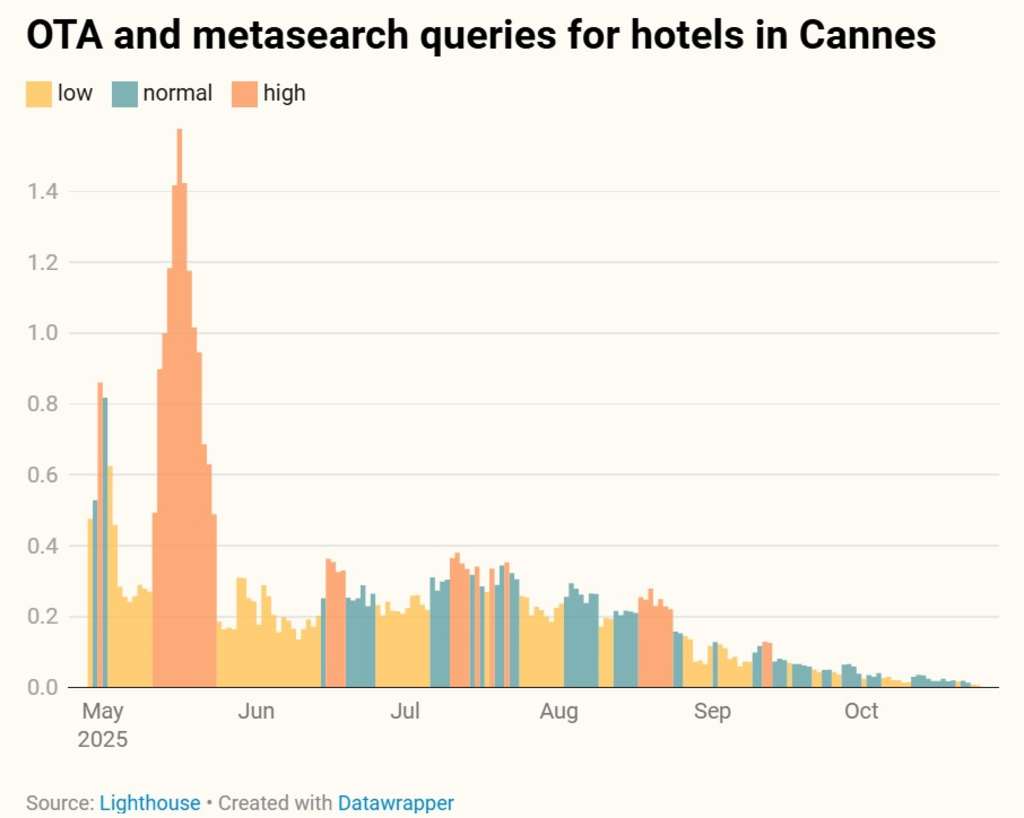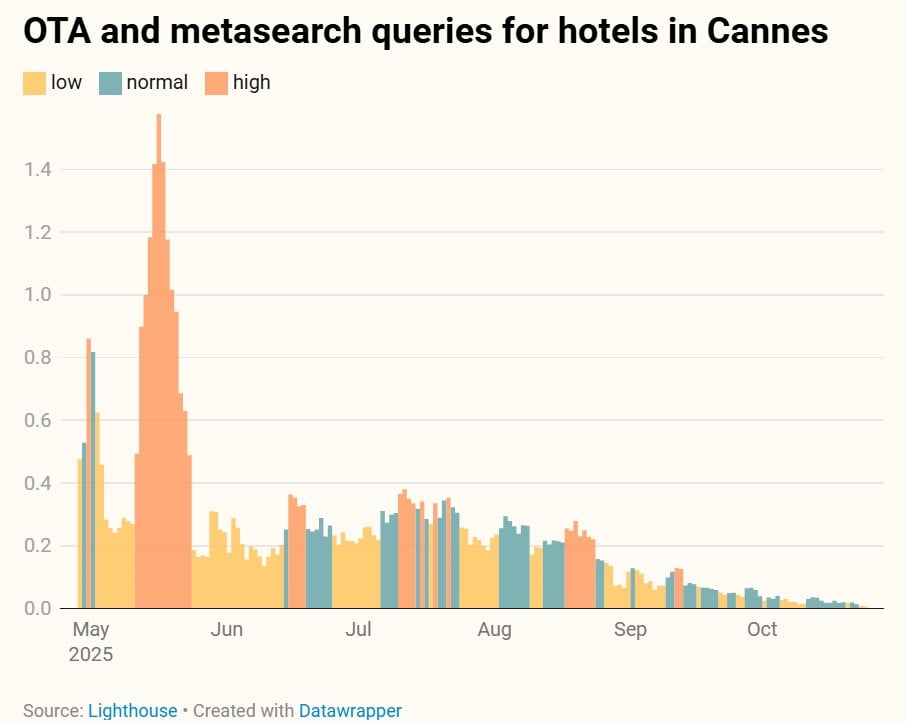The arts are a major draw to Basel and Cannes in 2019. Eurovision and Art Basel, as well the Cannes Film Festival and Cannes Lion Festival will bring large crowds, and many bookings, to these two cultural tourism hubs by 2025.
Hotels expect a sold-out performance at Eurovision, Art Basel and Cannes Film Festival
This year, Basel and Cannes are both packed with cultural events. They should achieve record rates.
- Basel will host the 2025 Eurovision Song Contest. The contest begins on May 12 and ends with the Finale on May 17. Art Basel takes place from June 19-22.
- Cannes also has two major events that are worth noting in the remaining H1 calendar. The Cannes Film Festival will be held from May 13- 24 and then the Cannes Lions International Festival of Creativity will take place from June 16- 20.
These events drive demand, attracting thousands of people during the period. Hotels are anticipating very high occupancy levels.
It’s evident that the H1 revenue performance of hotels will be determined by unavailable properties (properties that are not listed because they have sold out, been closed or enforced length-of stay restrictions on their inventory).
In both cities, inventory is dwindling, especially in Cannes, where only one in ten properties are listed as available at the time of writing for the Film Festival, and all properties are listed as unavailable at the peak of the Lions Festival.
Basel has a slightly more favorable outlook for travelers still hoping to secure a last-minute ticket and accommodation. However, at the time of writing, three-quarters of hotels were listed as unavailable for both Eurovision and Art Basel.
Hotel demand climbs in Basel and Cannes
Although hotels already have a substantial number of reservations on the books, forward demand indicators suggest that more demand is likely to materialize in the final weeks.
Our composite demand level metric shows blocks of highly elevated demand for Eurovision, Art Basel, and Cannes Film Festival, with particularly strong spikes on June 15 and 19 during the Cannes Lions.
In the case of the last event, this metric may not capture the full picture as the festival is centered around the marketing industry and so much of the demand generated will be fulfilled through corporate bookings well in advance, often through GDS systems.
For Eurovision, demand builds steadily up to the final, while for Art Basel, it’s more front-loaded – peaking between June 16 and 18 as art buyers arrive and festivities ramp up, including a major art fair in the days leading up to the main event.
In Cannes, the Film Festival shows a clearly defined demand window, with forward indicators elevated from June 13 to 24. In contrast, peak demand for Cannes Lions falls on June 19, but the event is less visible in forward indicators due to its corporate audience, which books through channels not typically captured in leisure demand data.
A year-on-year comparison of forward demand indicators makes it clear why hoteliers in Basel are optimistic – and why they’ve set high prices for their rooms.
For the Eurovision final the composite measure is nearly twice as high as on the same day last year at +188%.
In the case of Art Basel there is no overlap in the exact dates, with the 2024 event running from June 13-16th, however, while daily indicators are down -75% in what would have been peak demand in 2024, these levels rise to +153% during the 2025 dates, indicating YoY growth in demand in general.
Cannes presents a much more nuanced picture, showing minimal year-over-year growth in daily demand for both events, even though their timing is almost identical to 2024, with only a day’s difference.
For the Film Festival, demand is overall comparable YoY, with lower demand indicated in the middle of the festival, but higher demand as it closes.
The Lions Festival, on the other hand, does not show a demand spike in the indicators. In fact, forward demand is down by 30% on June 19, likely reflecting the festival’s corporate audience of the festival, whose bookings often fall outside traditional demand signals.
Recent peaks in pricing for Basel and Cannes
These events are largely driving H1 rates up to their highest levels in a welcome boost to local hospitality markets.
Average prices for the week of Eurovision are up 87% compared to the same week in 2024, which did not feature a comparable major event. In contrast, prices for Art Basel show a more modest 5% increase in a like-for-like comparison between 2024 and 2025.
For the Cannes Film Festival, peak pricing in 2025 is 20% higher than in 2024; a substantial jump, especially considering the already elevated rates last year.
However, for the Lions Festival, hotels in Cannes appear to have missed the opportunity to raise rates, with average weekly prices down 10% year-on-year. Although, as we’ll explore later, there is a significant ongoing uplift underway.
At the daily level, prices peak at $477 for Eurovision, just below Art Basel’s $501. The Cannes Film Festival is by far the most expensive, with peak nightly rates reaching $705 on May 15. Meanwhile, the Lions Festival has the lowest peak at $429 per night, which is still more than double the city’s typical rate.
Hotel room price swings in Basel and Cannes during peak events
Although prices are largely up YoY during these events, this isn’t to say hotels are now on a set-and-forget strategy.
Instead, we are seeing wild swings in average advertised prices as hotels either try to shift their remaining inventory or price up to meet the swelling demand.
There is a clear divergence between the two cities’ hospitality markets: hotels in Basel have generally been adjusting prices downward in recent weeks, while those in Cannes are aggressively pushing rates higher.
A month-on-month comparison from late April shows that hotels in Basel are slashing rates for remaining rooms during Eurovision. In the week leading up to the final, prices have been cut by between 11% and 24%, with average rates down 15% on the day of the final itself.
However, declining prices immediately before a major event are not unusual, as our research has found.
Cannes is a different story. During the Film Festival the biggest monthly shift was a 41% rise in the average daily rate on May 15th. Even more striking, hotels have raised prices by 71% on June 15 – the day before the Lions Festival begins – within just the past 30 days.
Extremely limited inventories and a still developing demand are the main drivers.
Between May 15 and 19 the number of hotel queries and online travel agency (OTA) searches for Cannes hotels is at its highest, which coincides with the sharpest increase in the average room rate during the Film Festival.
This data also suggests that hotels in Cannes may have underestimated true interest in the Lions event, as rates have often been discounted year-on-year.
It’s likely that many hoteliers have relied on forward demand indicators and interpreted a weaker-than-expected outlook, unaware that corporate bookings may have obscured the true level of demand.
However, now we are close to the event, inventory is extremely limited and there remains potential attendees looking to make bookings.
This complex and rapidly shifting picture enforces the importance of having a strong picture of demand signals, market trends and also competitor behavior.
Although demand signals for Lions are mixed at best, hotels with an idea of unavailable hotels and market occupancy would have seen that a sell out is on the cards.
This makes predictive demand intelligence A necessity to capitalize trends and align revenue management strategies with market behavior.
Predictive market intelligence is the key to success for events
Hotel markets are affected by big events such as Eurovision, Eurovision, Art Basel, Lions and Cannes Film Festival. If you are not prepared to react, you could lose out on revenue.
To be ahead of the game, you need to have more than just intuition. Real-time visibility of demand is essential, as is the confidence you need to act.
The following are some alternatives to the word “Advantage” Lighthouse’s Market InsightYou can track the interest in key events day-by-day, identify surges in demand before your competition, and adjust pricing strategies before the window expires.
Plan better. Plan smarter. Make the most out of every opportunity.
Lighthouse
Lighthouse is the leading commercial platform for the travel & hospitality industry.
We convert complexity into confidence with our actionable market insight, business intelligence and pricing tools to maximize revenue growth.
We are constantly innovating to provide the best platform to hospitality professionals so that they can price more effectively, measure their performance more efficiently and understand the market better.
Lighthouse, the only solution trusted by over 70,000 hoteliers in 185 different countries, is the one that provides data about hotels and short-term rentals in real time on a single platform. Our goal is to deliver an unmatched level of customer service. We consider our clients as true partners—their success is our success.
Visit Lighthouse for more information. https://www.mylighthouse.com.


